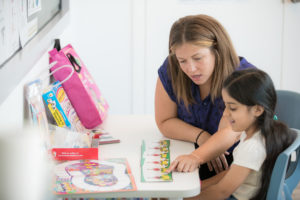Did you know that vocabulary growth helps kids think and learn about the world and is directly linked to their overall success at school?
If your child is struggling with reading, research suggests that there will almost always be a connection to their lack of vocabulary.
New research reveals toddlers who are late talkers are twice as likely to have severe and frequent tantrums.
Findings of the extensive research into 2000 children, published in the Journal of Applied Developmental Psychology, highlights the importance of encouraging language development in children as young as 12 months old.
So, parents, if your child is between 1 and 5 years of age, now is the time to develop these critical vocabulary skills!
What is vocabulary?
The term vocabulary can have a few different meanings. Teachers might define vocabulary as;
- Sight word vocabulary – immediate recognition of the printed word
- Meaning vocabulary – what students understand when they read printed words
- Listening vocabulary – understanding words in spoken language
- Academic vocabulary – words that students need to know and understand in order to comprehend concepts being taught in school.
Vocabulary development includes all of the above and takes the number one spot in a child’s overall literacy development!
What can parents and teachers to do help?
It is up to parents and teachers to teach children – either through structured lessons or through reading, writing and conversing. Learning takes place at home, at school and in the community. So, it’s important that your child develops a rich vocabulary through direct instruction, exposure to words and social interaction.
Parents and teachers must:
- Provide a variety of rich language experiences through reading stories aloud, encouraging conversations about new words, encouraging independent reading of stories and creating an environment that stimulates focus towards new vocabulary.
- Teach individual words through direct instruction by repeating new words a few times, providing material containing new or unknown words and talking about the meanings of words, engage students in practicing new words in different contexts and talking about other words that are similar in meaning.
- Teach word learning strategies.
- Developing an interest in words by introducing a variety of interesting books and magazines appropriate for the ages and interests of child, and promoting word play of new words in different games.

10 easy activities parents can do at home
The following activities are excellent tools for helping your child link literacy to vocabulary!
- Read to your child every day
- Point to the words in the book as you read them
- Point to the pictures in the book as you read the story
- Page turning: Encourage your child to turn the pages of the book, but only once they have finished attending to details on the page
- Model to your child reading a book from front to back
- Independent selection: Encourage your child to choose the book to read at story time
- Sing songs and nursery rhymes
- Alphabet: Learn the alphabet song
- Rhyming books: Read books that have rhyming words in them (e.g. Dr Seuss books)
- Games: Play games such as “I spy” to help your child think about things that start with a specific sound (e.g. “I spy with my little eye something that starts with t”)
For more information, please contact our friendly team here: www.youthrive.com.au/contact/

